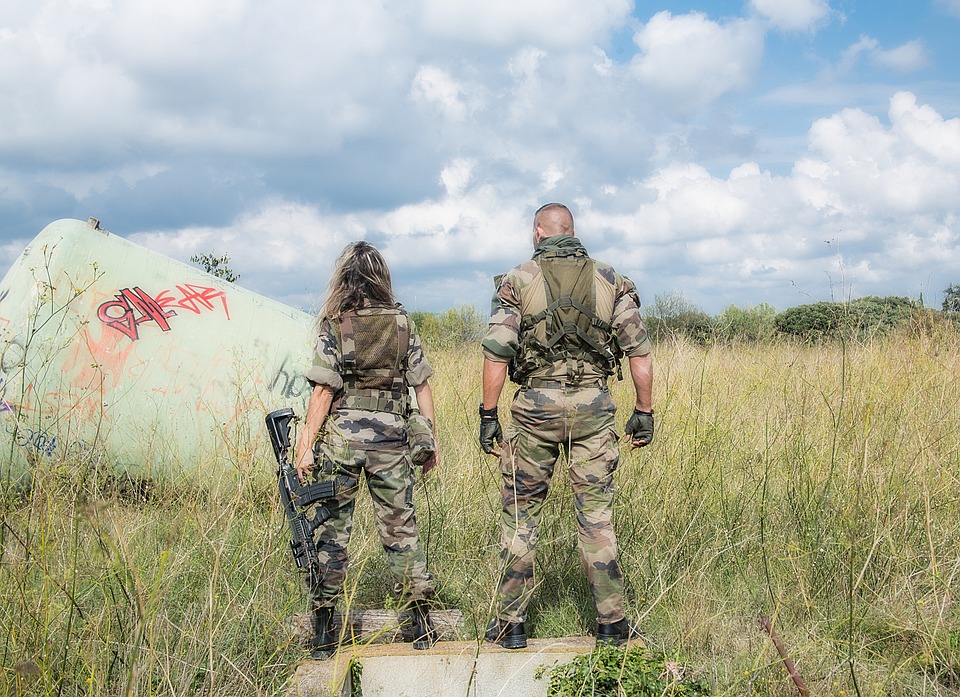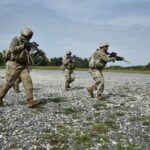Military training and preparedness are essential components of any army. With the ever-changing landscape of modern warfare, it is crucial for military personnel to be well-trained and prepared for any situation they may encounter. This article will discuss the importance of military training and preparedness in the army, highlighting the benefits and significance of these aspects in maintaining a strong and effective military force.
Importance of Military Training
Military training is the foundation of any successful army. It provides soldiers with the skills and knowledge they need to effectively carry out their duties and responsibilities. Training is essential for ensuring that soldiers are well-equipped to handle the challenges and demands of modern warfare.
One of the primary benefits of military training is that it helps to build discipline and teamwork among soldiers. Training exercises require soldiers to work together towards a common goal, teaching them the importance of communication, cooperation, and collaboration. This teamwork is crucial in combat situations, where soldiers must rely on each other to succeed and achieve their objectives.
Additionally, military training helps to develop physical fitness and mental resilience among soldiers. Training exercises often involve physical challenges and strenuous activities, which help to build strength, endurance, and agility. Soldiers are also taught to push through mental barriers and overcome obstacles, developing a strong mindset that is essential for success in combat situations.
Moreover, military training helps to teach soldiers essential combat skills, such as marksmanship, tactical maneuvers, and hand-to-hand combat techniques. These skills are crucial for ensuring that soldiers are prepared to engage and defeat enemy forces effectively. Training also includes simulations and live-fire exercises, which provide soldiers with realistic combat scenarios to test their skills and readiness.
Benefits of Military Training
There are numerous benefits to military training. One of the most significant benefits is that it helps to improve overall readiness and preparedness among soldiers. By participating in regular training exercises and simulations, soldiers are better equipped to handle the challenges and demands of combat situations. They are more confident in their abilities and have a greater understanding of their roles and responsibilities.
Military training also helps to enhance leadership skills among soldiers. Training exercises often involve assigning soldiers leadership roles and responsibilities, allowing them to practice decision-making, problem-solving, and strategic thinking. This experience not only helps to develop strong leaders within the army but also ensures that soldiers are prepared to take on leadership roles in combat situations.
Furthermore, military training helps to foster a sense of camaraderie and loyalty among soldiers. Training exercises create a bond among soldiers as they work together towards a common goal. This camaraderie is essential for building trust and unity within the army, ensuring that soldiers can rely on each other and work together effectively in high-stress situations.
Overall, military training is essential for maintaining a strong and effective army. It provides soldiers with the skills, knowledge, and confidence they need to succeed in combat situations. By investing in training and preparedness, armies can ensure that they are ready to respond to any threat or challenge that may arise.
Importance of Military Preparedness
Military preparedness is essential for ensuring that armies are ready to respond quickly and effectively to threats and challenges. Preparedness involves having the necessary resources, equipment, and personnel in place to address any situation that may arise. It also includes conducting regular training exercises and drills to test and improve readiness levels.
One of the key benefits of military preparedness is that it allows armies to respond rapidly to emerging threats. By having resources and personnel in place, armies can quickly mobilize and deploy forces to address any situation, whether it be a natural disaster, a terrorist attack, or a military conflict. Preparedness ensures that armies are ready to respond to any situation with speed and efficiency.
Additionally, military preparedness helps to deter potential adversaries and maintain peace and stability. By demonstrating strength and readiness, armies can deter aggression and prevent conflicts from escalating. Preparedness sends a clear message to potential adversaries that armies are capable and ready to defend their interests and protect their citizens.
Furthermore, military preparedness helps to build resilience and adaptability among armies. By conducting regular training exercises and drills, armies can test their readiness levels and identify areas for improvement. This process allows armies to adapt and adjust their strategies and tactics in response to changing threats and challenges, ensuring that they remain effective and efficient in all situations.
Benefits of Military Preparedness
There are numerous benefits to military preparedness. One of the most significant benefits is that it ensures armies are ready to respond to any situation, whether it be a natural disaster, a terrorist attack, or a military conflict. Preparedness allows armies to quickly mobilize forces and deploy resources to address any threat or challenge that may arise.
Military preparedness also helps to build confidence and trust among citizens. By demonstrating strength and readiness, armies reassure the public that they are capable of protecting them and ensuring their safety. This confidence is essential for maintaining peace and stability within society, as citizens feel secure knowing that their army is prepared to defend them.
Moreover, military preparedness helps to strengthen alliances and partnerships with other countries. By demonstrating readiness and capability, armies can build trust and cooperation with allies, ensuring that they can work together effectively to address common threats and challenges. Preparedness fosters collaboration and coordination among armies, creating a strong and united front against shared adversaries.
Overall, military training and preparedness are essential components of maintaining a strong and effective army. By investing in training and readiness, armies can ensure that they are well-equipped to handle the challenges and demands of modern warfare. Training and preparedness help to build discipline, teamwork, leadership, and resilience among soldiers, ensuring that they are ready to respond to any threat or challenge that may arise. By prioritizing training and preparedness, armies can maintain peace and security within society and protect their citizens from harm.


